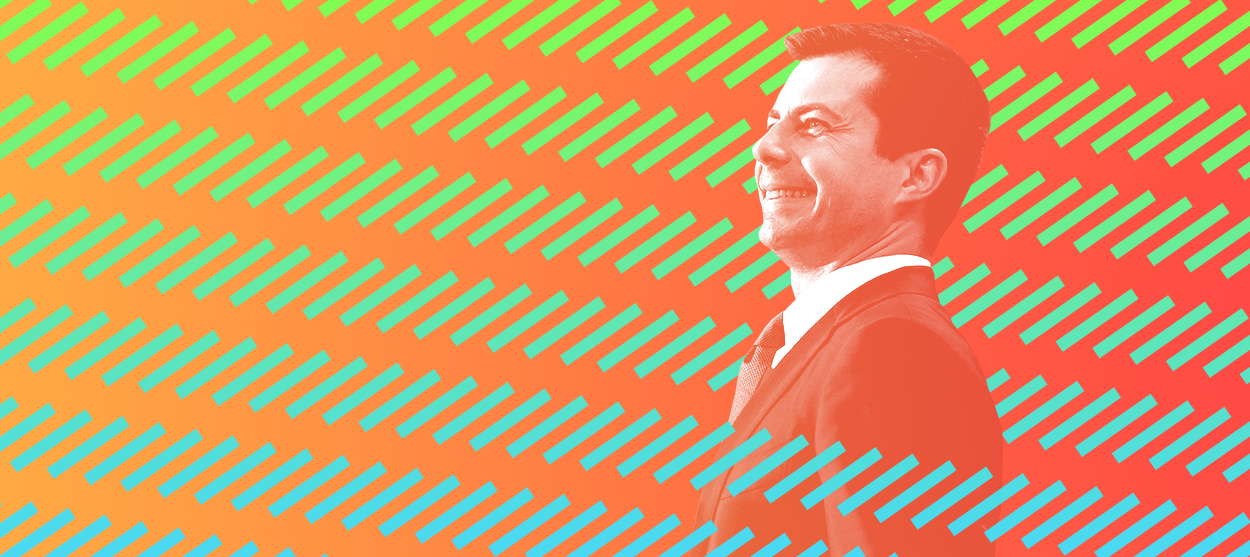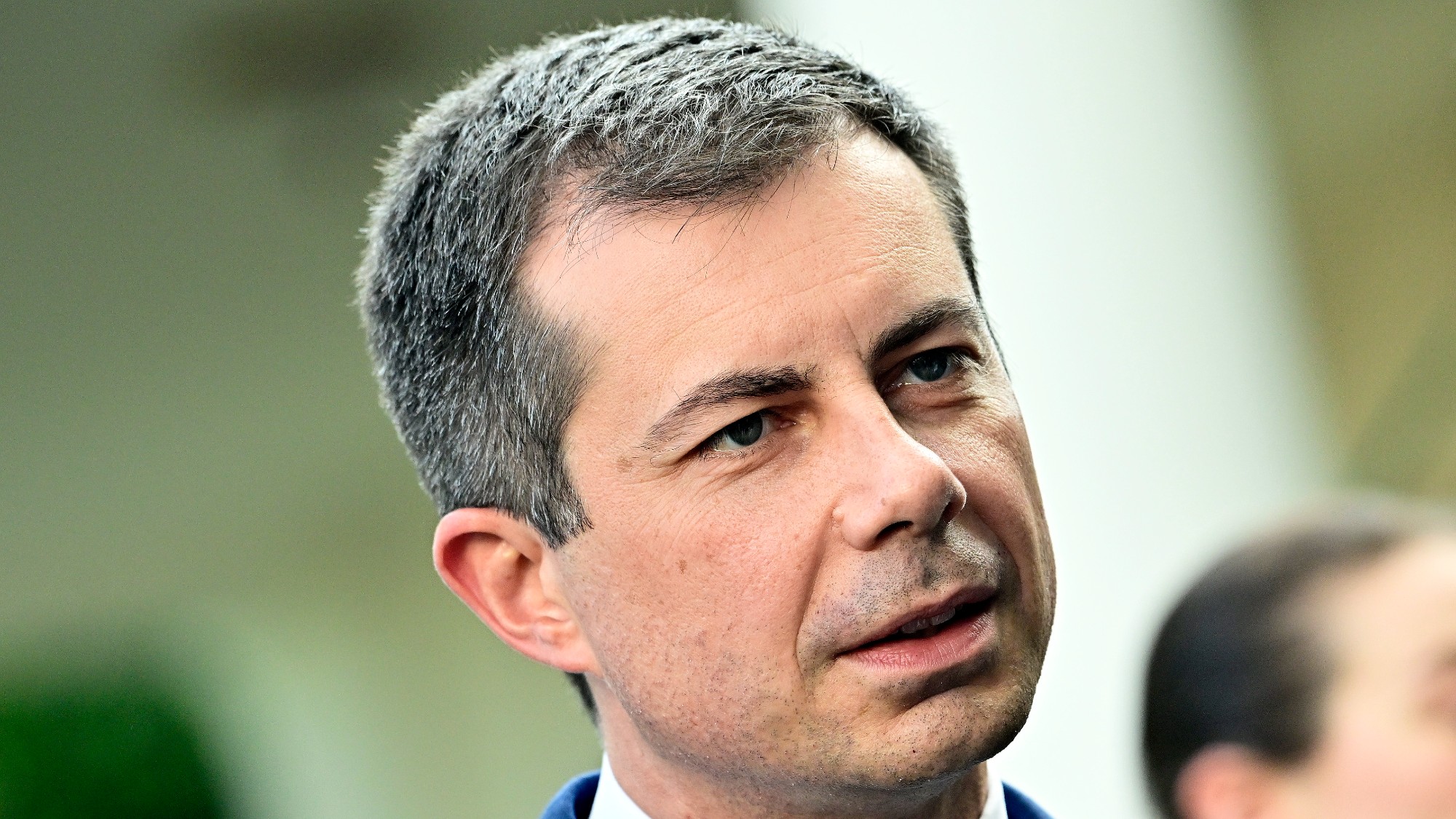We haven't seen the last of Pete Buttigieg
He'll be back


A free daily email with the biggest news stories of the day – and the best features from TheWeek.com
You are now subscribed
Your newsletter sign-up was successful
The 38-year-old openly gay former mayor of the fourth-largest city in Indiana was always going to be a long shot to win a major party's presidential nomination. That Pete Buttigieg managed to get as far as he did in the extraordinarily crowded race to become the Democratic Party's nominee in 2020 — including a very narrow win in the Iowa caucuses — is a testament to what a rare political talent he is. I don't know precisely what role he will play through the weeks and months ahead. (I'm sure the Biden campaign would be thrilled with an endorsement as quickly as possible.) But I do know that, if he wants it, Buttigieg is going to have a very bright future in Democratic politics.
In the Sunday evening speech in which he announced the end of his campaign, Buttigieg displayed many of his characteristic strengths as a candidate. Introduced by his husband Chasten Buttigieg and standing before an adoring crowd in South Bend, Indiana, Buttigieg spoke about his responsibility to step aside to help unify Americans to defeat President Trump. He took a dig at Sen. Bernie Sanders' (I-Vt.) polarizing socialist crusade for president by implying that America needs a broad and inclusive politics to win the House and Senate along with the White House. He also spoke of hope and belonging and other noble communitarian principles that Trump defies and defiles in a daily basis. And he portrayed politics itself in the loftiest possible terms — as a noble pursuit that at its best can elevate individuals as well as nations.
More than anything, Buttigieg's remarks, which built to a clamorous crescendo of idealism in its final moments, resembled former President Barack Obama's breakout speech at the 2004 Democratic convention. But then, Buttigieg was always striving to evoke Obama's rhetorical flourishes, sometimes in a way that inadvertently highlighted his own youth and inexperience. Obama always exuded gravitas. Buttigieg sometimes sounded like he was playacting it.
The Week
Escape your echo chamber. Get the facts behind the news, plus analysis from multiple perspectives.

Sign up for The Week's Free Newsletters
From our morning news briefing to a weekly Good News Newsletter, get the best of The Week delivered directly to your inbox.
From our morning news briefing to a weekly Good News Newsletter, get the best of The Week delivered directly to your inbox.
That could be grating, which is how it's often felt since last October, when Buttigieg finally committed to running as a moderate. I wouldn't have expected that at the start of his campaign. When Buttigieg first jumped into the race, he managed to gain attention for himself by sitting down for a string of interviews with high-profile media outlets. In these conversations, he came off as smart, knowledgeable, and almost preternaturally articulate. He also displayed a potent combination of progressive passion and sincere empathy for those who expressed their discontents with recent economic and cultural trends in American life by voting for Trump. Buttigieg seemed to "get" the kind of Midwestern voters who switched from Obama to Trump in 2016. That ability to "read" voters who come from different places on the ideological spectrum is an essential skill in any Democrat hoping to win the presidency in the 21st century.
Put that verbal and emotional fluency together with a capacity to speak several foreign languages and play multiple musical instruments, and Buttigieg was catnip for highly educated upper-middle-class white voters — a group he eventually came to split with Massachusetts Sen. Elizabeth Warren to his left.
I certainly liked him at first — even as he foundered through the spring and summer, trying to decide whether to compete with Sen. Kirsten Gillibrand (N.Y.), former Rep. Beto O'Rourke (Texas), and former Secretary of Housing and Urban Development Julián Castro for the title of wokest Democrat around. Oddly, my enthusiasm waned once he moved closer to my own centrist commitments. That's when he jumped up in the polls and began to seem like a viable candidate. But it's also when the Obamisms got out of hand.
Modeling oneself on a first-class politician is a perennial temptation for an ambitious young pol. But it's also an amateur move, and something that needs to be shed before breaking into the biggest leagues. O'Rourke suffered from the same problem, sounding during most of his relatively short-lived campaign like he was auditioning for a role in a film about Robert F. Kennedy's doomed presidential run in 1968.
A free daily email with the biggest news stories of the day – and the best features from TheWeek.com
There are undoubtedly many reasons why Buttigieg struggled so mightily to win the support of African-American voters, including his sexual orientation. But I suspect one of the big ones was that he not only sounded like Obama. He sounded like he was trying hard to sound like Obama. Buttigieg will have to learn to craft his own political identity and get beyond the urge to emulate his heroes.
I don't doubt that he will. There were other minor missteps over the past year — including Buttigieg's decision to waste limited time during the Las Vegas debate picking a series of petty and mutually diminishing battles with Minnesota Sen. Amy Klobuchar (D). But none of that should take away from the real story of Buttigieg's campaign, which is that it succeeded in catapulting him from political obscurity to someone who is bound to be a fixture on the national political scene for decades to come.
During the year-long run-up to the start of the primaries, I've sometimes permitted myself to tell a little joke about my difficulty finding a candidate to commit to. "I support Warren with two plans instead of 12, Klobuchar after a charisma transplant, Biden 15 years ago, and Buttigieg 15 years in the future."
See you in the 2030s, Mayor Pete. If not before.
Want more essential commentary and analysis like this delivered straight to your inbox? Sign up for The Week's "Today's best articles" newsletter here.
Damon Linker is a senior correspondent at TheWeek.com. He is also a former contributing editor at The New Republic and the author of The Theocons and The Religious Test.
-
 Crisis in Cuba: a ‘golden opportunity’ for Washington?
Crisis in Cuba: a ‘golden opportunity’ for Washington?Talking Point The Trump administration is applying the pressure, and with Latin America swinging to the right, Havana is becoming more ‘politically isolated’
-
 5 thoroughly redacted cartoons about Pam Bondi protecting predators
5 thoroughly redacted cartoons about Pam Bondi protecting predatorsCartoons Artists take on the real victim, types of protection, and more
-
 Palestine Action and the trouble with defining terrorism
Palestine Action and the trouble with defining terrorismIn the Spotlight The issues with proscribing the group ‘became apparent as soon as the police began putting it into practice’
-
 The billionaires’ wealth tax: a catastrophe for California?
The billionaires’ wealth tax: a catastrophe for California?Talking Point Peter Thiel and Larry Page preparing to change state residency
-
 Bari Weiss’ ‘60 Minutes’ scandal is about more than one report
Bari Weiss’ ‘60 Minutes’ scandal is about more than one reportIN THE SPOTLIGHT By blocking an approved segment on a controversial prison holding US deportees in El Salvador, the editor-in-chief of CBS News has become the main story
-
 Has Zohran Mamdani shown the Democrats how to win again?
Has Zohran Mamdani shown the Democrats how to win again?Today’s Big Question New York City mayoral election touted as victory for left-wing populists but moderate centrist wins elsewhere present more complex path for Democratic Party
-
 Millions turn out for anti-Trump ‘No Kings’ rallies
Millions turn out for anti-Trump ‘No Kings’ ralliesSpeed Read An estimated 7 million people participated, 2 million more than at the first ‘No Kings’ protest in June
-
 Ghislaine Maxwell: angling for a Trump pardon
Ghislaine Maxwell: angling for a Trump pardonTalking Point Convicted sex trafficker's testimony could shed new light on president's links to Jeffrey Epstein
-
 The last words and final moments of 40 presidents
The last words and final moments of 40 presidentsThe Explainer Some are eloquent quotes worthy of the holders of the highest office in the nation, and others... aren't
-
 13 potential 2028 presidential candidates for both major parties
13 potential 2028 presidential candidates for both major partiesIn Depth A rare open primary for both parties has a large number of people considering a run for president
-
 The JFK files: the truth at last?
The JFK files: the truth at last?In The Spotlight More than 64,000 previously classified documents relating the 1963 assassination of John F. Kennedy have been released by the Trump administration
